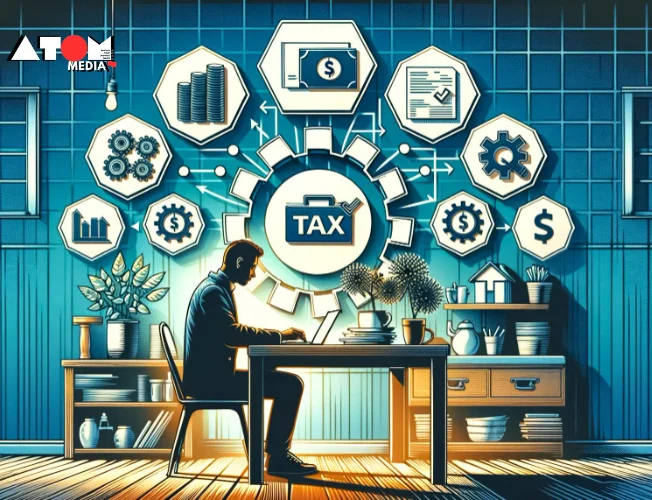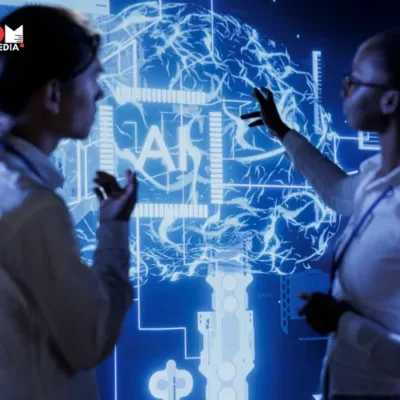As India undergoes the most significant transformation in indirect tax administration, businesses are finding themselves at the forefront of a digital revolution. The traditional methods of managing tax compliance—largely reliant on spreadsheets and manual entries—are rapidly giving way to integrated, automated systems driven by advanced technologies. This shift is not only streamlining tax processes but also opening up new opportunities for businesses to stay compliant while capitalizing on emerging regulatory requirements.
Niraj Hutheesing, Founder and Managing Director of Cygnet.One, a tech-driven platform that is transforming tax and finance, delves into how advanced technologies such as AI, machine learning, and automation are reshaping tax compliance. His insights were shared during a virtual fireside chat titled Powering Progress: How Technology is Transforming Tax Compliance, as part of the AWS Bharat Innovators Series.
The Changing Landscape of Indirect Tax Compliance
The introduction of Goods and Services Tax (GST) in India has brought about monumental changes in how businesses manage tax compliance. With escalating regulatory pressure and an increasing focus on e-invoicing, companies are facing the urgent need to digitize their tax functions. Gone are the days when businesses could rely solely on tax agents or chartered accountants to file returns. Now, they must embrace digital solutions to meet the complexities of the modern tax environment.
According to Hutheesing, “No country in the world has evolved as fast as India in terms of digital taxation. Whenever I travel outside of India, the regulators I interact with all want to hear the India story to understand how we achieved this feat.”
The transition from manual tax filing systems to fully automated, real-time reporting platforms has significantly transformed how businesses handle indirect tax compliance. As companies move towards adopting technology-driven solutions, it’s becoming clear that automation and integration are the only ways forward.
The Role of Automation in Modern Tax Compliance
For businesses, staying compliant with ever-changing tax regulations can be a cumbersome and resource-intensive process. The complexity of India’s tax ecosystem, combined with the need for real-time reporting and e-invoicing, has made it difficult for businesses to keep up without technological assistance.
“Businesses are evolving,” Hutheesing explained. “To report e-invoices to the government, they had to start filing taxes online and opt for a clearance model where invoices had to be submitted in real-time. That created a complete transformation.”
This shift to digital tax filing has led to a growing reliance on AI-powered tax solutions. By using machine learning algorithms and data analytics, businesses can now automate the majority of their tax processes, reducing human error and ensuring compliance with the latest regulatory standards.
For instance, Cygnet.One has been at the forefront of providing innovative tax solutions that help businesses manage compliance more efficiently. The platform’s use of AI, automation, and data warehousing enables companies to not only comply with GST requirements but also streamline their entire tax function.
Success Stories: The Power of Digital Tax Transformation
Hutheesing shared two notable success stories that highlight the transformative impact of digital tax solutions. In one case, India’s largest bank faced the daunting task of uploading over two crore invoices to the GST Network server. Due to an error in the data, the invoices had to be deleted and re-uploaded within 48 hours. Cygnet.One stepped in and wrote a custom code overnight, allowing the bank to meet the deadline successfully.
This kind of real-time intervention underscores the power of automation in handling large-scale tax operations. In another instance, Cygnet.One helped one of India’s largest fast-moving consumer goods (FMCG) companies revolutionize its tax compliance processes. The company’s decision to partner with Cygnet.One was based on the platform’s ability to provide both immediate solutions and long-term strategies for compliance and efficiency.
“Out of Nifty 50, more than 22 are Cygnet.One’s clients,” Hutheesing said, illustrating the platform’s widespread adoption across industries. “We also partner with some of the largest organizations in the world, wherein we integrate each of our solutions and go to market together.”
The Future of Tax Compliance: AI and Data Sensitivity
As businesses continue to adopt digital tax solutions, the role of artificial intelligence in tax compliance will become even more pronounced. AI has the potential to revolutionize tax administration by automating repetitive tasks, analyzing vast amounts of data, and providing actionable insights that help companies stay compliant with ease.
Hutheesing noted that while AI adoption is still in its early stages, the foundation for leveraging its full potential lies in creating a robust data warehouse. “Few years down the line, areas such as mechanical work, articulation of data points, and developing new areas of business would be highly impacted by Generative AI,” he said. By harnessing the power of AI, businesses will be able to navigate the complexities of tax compliance more efficiently and with greater accuracy.
The emergence of e-invoicing and other digital innovations is expected to further revolutionize how businesses comply with tax regulations. As companies increasingly turn to technology to manage their tax functions, the integration of AI, automation, and data analytics will be key to staying ahead of regulatory changes and ensuring compliance.
The Importance of Digital Transformation for Tax Professionals
The ongoing digitalization of the tax landscape presents a unique opportunity for businesses to rethink their approach to compliance. Rather than relying on outdated methods, companies must embrace new technologies to streamline their operations and meet the growing demands of tax authorities.
With platforms like Cygnet.One leading the charge, businesses now have access to cutting-edge tax solutions that not only make compliance more manageable but also provide insights that can drive growth and innovation.
As the tax function continues to evolve, the focus will shift from merely meeting regulatory requirements to optimizing tax operations for efficiency and agility. This transformation will require a combination of technology, people, and processes working together to create a seamless and efficient tax compliance ecosystem.
Preparing for the Future of Tax Compliance
The future of tax compliance lies in the seamless integration of technology and data-driven processes. As businesses face mounting regulatory pressures and an increasingly complex tax environment, the need for automation and AI-driven solutions has never been greater.
With India leading the way in digital taxation, companies must adopt a proactive approach to tax compliance by embracing technology and leveraging the power of automation. Platforms like Cygnet.One are helping businesses not only stay compliant but also capitalize on new opportunities for growth and innovation.
As we look ahead, it’s clear that the digitalization of tax compliance is not just a trend—it’s the new reality. Businesses that fail to adapt risk falling behind, while those that embrace the future of tax compliance will be well-positioned to thrive in this new era.
Read more: Marketing News, Advertising News, PR and Finance News, Digital News





